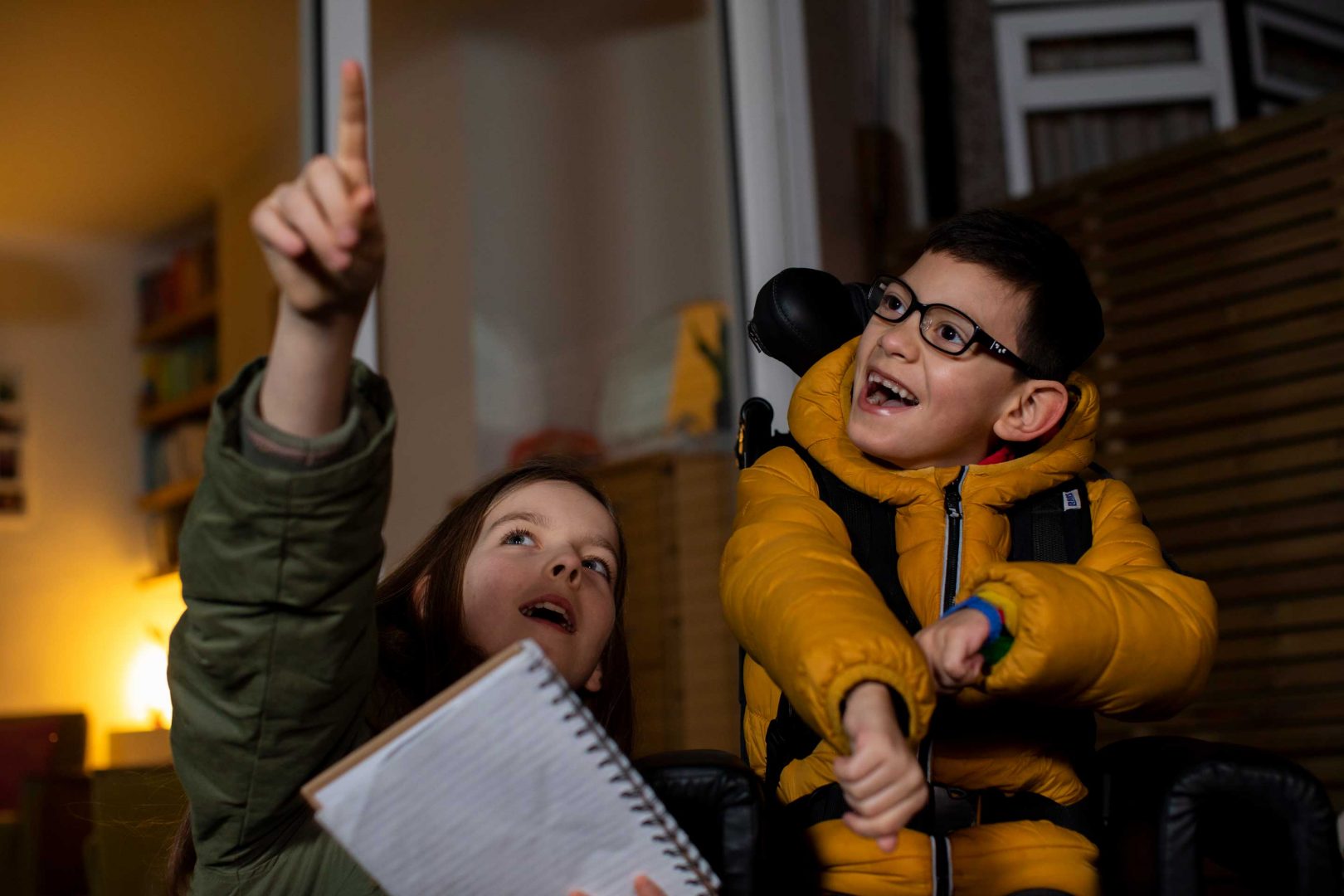Star Count 2020 shows 61% live in areas with severe light pollution

28 May 2020
In February 2020, CPRE, the countryside charity, asked the nation to count the number of stars visible in the Orion constellation. More than 2,400 people took part and the results show that for most of us, light pollution is blocking our view of the night sky.
61% of people taking part counted ten stars or fewer, meaning they were in an area with severe light pollution – an increase from 57% last year. CPRE, along with the British Astronomical Association’s Commission for Dark Skies, is calling for councils to act on light pollution so more people can enjoy starry skies.
This February, more than 2,400 people across the country took part in a star-counting survey run by CPRE, the countryside charity. By counting the number of stars visible in the constellation of Orion, it helps build up a picture of the nation’s views of the night sky.
CPRE believes that a star-filled night sky is one of the most magical sights of the countryside – and throughout the coronavirus outbreak lockdown, gazing up at the stars will have brought comfort to many during an extremely difficult time. Yet light pollution can spread from towns and cities into the countryside, denying many people the chance to experience the wonder and tranquillity of seeing a sky full of stars.
The results of this citizen science survey, carried out annually, suggest that across the UK, 61% of people are in areas with severe light pollution, counting fewer than ten stars. This is a rise of 4% from last year, when 57% of people taking part were in these areas.
Crispin Truman, CPRE chief executive, said:
‘Gazing up at the heavens can inspire and help lift our spirits, especially when many of us are forced to do so from within our homes at the moment. It’s a shame that few of us can see the starry skies in all their glory, without the intrusion of light pollution.’
There was some good news at the other end of the scale, with 3% of people counting more than 30 stars within Orion, meaning that they were in areas with truly dark skies. That’s a rise from 2% in 2019.
Families who took part and were able to see plenty of stars on the night of their count reported how much they loved the experience. In addition, 99% of star-counters asked said they believed that every child should be able to experience the wonder of a star-filled night sky.
Bob Mizon from the British Astronomical Association’s Commission for Dark Skies (CfDS) said:
‘It’s wonderful to hear about families having fun doing the Star Count. Children should be able to see the Milky Way, their own galaxy, by looking up at the sky as well as by seeing pictures on their screens!’
CPRE and CfDS believe that councils have the power to give people better views of the night sky. And when asked, 82% of star-counters responding to a survey said their local council should do more to tackle light pollution.
Crispin added:
‘We’d like to see councils adopting better policies in local plans to tackle light pollution and protect and enhance our darkest skies, where people can still experience the wonder of a star-filled night sky. There are straightforward steps councils can take, in consultation with local people, that don’t just reduce light pollution but save energy and money too.’
The map showing the results of CPRE’s Star Count 2020 is online here.
ENDS
Editors’ notes
1. Full results table
| Stars counted | Number | % |
|---|---|---|
| 0>5 | 437 | 17.8 |
| 6>10 | 1061 | 43.3 |
| 11>15 | 545 | 22.2 |
| 16>20 | 217 | 8.8 |
| 21>25 | 86 | 3.5 |
| 26>30 | 32 | 1.3 |
| >30 | 74 | 3.0 |
| Total | 2452 | 100 |
2. Survey question results
Do you think your local council should do more to tackle light pollution in your area?
| Response | Total for each | % |
|---|---|---|
| Don’t know | 131 | 9.2 |
| No | 125 | 8.8 |
| Yes | 1163 | 82.0 |
| Total | 1419 | 100 |
Do you think every child should be able to experience the wonder of a star-filled night sky?
| Response | Total for each | % |
|---|---|---|
| Don’t know | 5 | 0.4 |
| No | 7 | 0.5 |
| Yes | 1407 | 98.8 |
| Total | 1424 | 100 |
Please call our Media Relations Lead, Jonathan Jones, on 020 7981 2819 / 078 3529 1907 for further information.



